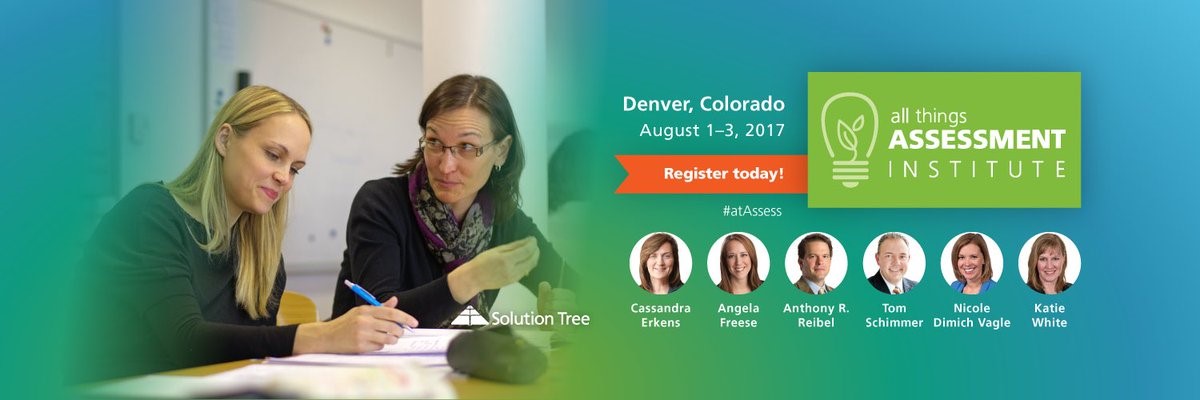Formative assessment has the potential to truly overcome the negative connotation that assessment tends to create. Teachers, administrators, parents, and students are all starting to see that formative assessment can help learners identify their own location on the learning trajectory and, if designed carefully, can help identify next steps for educators and learners alike. We can share examples of exit tickets that have been used by teachers (individually or collectively) in professional learning communities, to make instructional decisions for the next day. We can also talk about in-class adjustments that teachers use to re-teach or extend before the day’s learning even concludes. I would argue that there is another tool that has a bad rap and could provide the same degree of guidance for learners and teachers, and that is the quiz.
It seems appropriate that both the word test and quiz have four letters because they do seem to be words we avoid at all cost in education today. Tests can be tolerated because they are a necessity, even if begrudgingly. We all know that external accountability is a reality, and I also believe that people understand the value of summative assessment in general to inform our decisions.
I ask you to reconsider the concept of the quiz. I admit that it is a word that I do not always associate with effective instruction or learning. My own educational experience was littered with quizzes that were more of the “pop” variety than the purposeful kind. I particularly remember a reading quiz in high school about the book My Antonia that featured a question about the color of a character’s dress. It may have been important or relevant to theme or tone or symbolism, but my reaction was anger. It felt like trivia and it felt like my teacher included it simply as a “gotcha.” It negatively impacted my feeling for the book to such a degree that I avoided Willa Cather’s work for years, and that is a difficult thing to do when you are growing up in Nebraska!
I would advocate that quizzes could be used in a very different way. They should not negatively impact a student’s grade and they should not focus on unimportant information, but they should instead be considered a valuable formative assessment that helps students measure their own learning. I had the great fortune to hear Dr. John Dunlosky at a recent conference. He talked about learning strategies that have high impact and good generalization for a variety of content areas. As a former English teacher, I assumed that highlighting and rereading would be such high-yield techniques. They were not. The ones Dr. Dunlosky’s team found to be most effective were practice testing and spaced practice. In my own ignorance, I assumed that practice testing was just having students practice the types of items that they would encounter on a future assessment. This wasn’t it at all. Instead, this refers to students reviewing key concepts or learning targets and then testing themselves on the concepts until they could recall them fluently from memory. The concept of combining practice with a self-assessment yielded far higher results than simply twice as much practice.
This is where I think we need to create a new definition for quizzes, as that is essentially what students are doing when they must recall the information. This could be a quiz that is done by the student alone, or could be a quiz that the teacher provides as a way to determine areas of need for a group of students. The key is that the quiz should be conducted as a way to provide information and encourages students to continue learning, but not in a way that negatively impacts a grade. In my own district, we have extensive conversations about what would be considered formative assessment and what would be defined as summative assessment. I tend to subscribe to the idea that any assessment that can and IS used by either the learner or the teacher is formative. I think the types of quizzes that I described are certainly formative. My reading quiz in high school was summative and what it taught me was that minor details mattered more than the big picture in what I was reading in that class.
I understand that you may think that this type of strategy is simply for surface level learning. It may be most conducive for that type of learning, but I would also argue that we can’t move to deep learning and transfer until students have mastered surface learning. Dunlosky also states that we should teach students about these techniques and not assume that they know how to do this, no matter if we are working with elementary age students or college students.
Formative assessment is a tool that provides focus and information to help learning continue and to promote mastery. A quiz has the potential to be this kind of tool for teachers and students alike. As we improve our understanding and use of formative assessments, we should find new ways to think about old tools that encourage learning for all of us.
Dunlosky, J. Strengthening the Student Toolbox: Study Strategies to Boost Learning. American Educator. Fall 2013, pp. 12-21.


